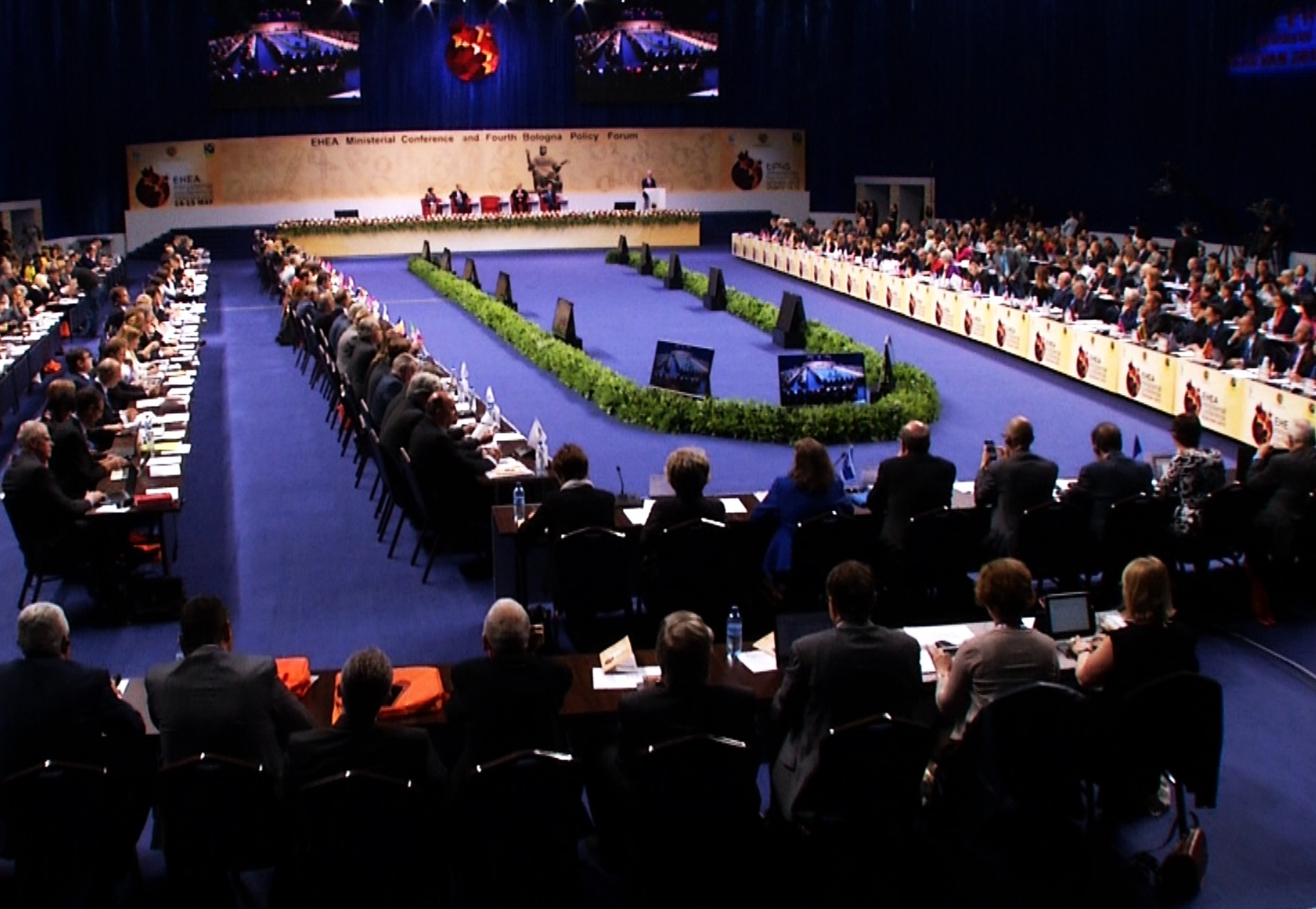Bologna Ministerial Conference 2015: still a long way to go for quality higher education in Europe
Published:
On 14-15 May 2015, the 2015 Ministerial Conference and Fourth Bologna Policy Forum took place in Yerevan, Armenia. During the meeting, 47 European ministers responsible for higher education and research – the "Bologna ministers" - signed the Yerevan Communiqué and the Fourth Bologna Policy Forum Statement to further advance in the implementation of the European Higher Education Area. The EI/ETUCE delegation composed by Martin Rømer, European Director of ETUCE; Jens Vraa-Jensen, DM; Andreas Keller, GEW; Alessandro Arienzo, FLC-CGIL; Ilze Trapenciere , LIZDA and Agnes Roman, ETUCE represented the voice of employees in higher education.
In line with the ETUCE Call to Ministers to Improve the Status of Employees in Higher Education and Research in Europe, the delegation strongly denounced the deteriorating working conditions and unsupportive working environment for staff as well as the increasing loss of academic freedom which are threatening the quality and the foundations of the European higher education and research area.
We regret that the adopted Ministerial Communiqué and the Yerevan Statement are not reflecting the requests of the trade unions of the higher education and research sectors on the most crucial issues to ensure high quality higher education in Europe, such as:
- To enhance social dialogue in the higher education and research sectors;
- To improve the working conditions of higher education and research staff and to promote a supportive environment for academics and higher education employees;
- To provide opportunities for enhancing academics' teaching competences by supporting professional development of higher education staff;
- To ensure transparent and democratic reforms on higher education policy by respecting academic freedom and institutional autonomy.
Commenting on the conference's outcome from Yerevan, the European Director Martin Rømer said: "the involvement of social partners in reforms in the higher education sector is essential to achieve the objectives of the Bologna process for a high quality European Higher Education Area. It is unacceptable that the views of social partners in higher education are not fully integrated into the reforms and objectives of the Bologna process. Proper social dialogue, well-paid teachers and good working conditions and environment are crucial to make a success of the Bologna process". This message was echoed by Xavier Prats-Monné, the Director General of Directorate of Education and Culture of the European Commission, who underlined that "We need well-paid teacher for a high quality higher education".
Eventually, the trade unions' request on gender equality in higher education scored EI/ETUCE delegation an important point: the need to improve gender equality in higher education learning and teaching has been introduced in the adopted Ministerial Communiqué.
The 47 ministers said "yes" to the recent candidacy of Belarus to be a member country of the European Higher Education Area and Bologna process. They jointly agreed on a three-year road-map for higher education reforms favouring the integration of Belarus into the Bologna process.
Martin Rømer welcomed this decision hoping that "this new conditions for Belarus will help not only to improve mobility for its students and higher education and research staff, but it will be also a good opportunity for enhancing academic freedom in Belarus".
The next Ministerial Conference and Fifth Bologna Policy Forum will take place in France in 2018.
